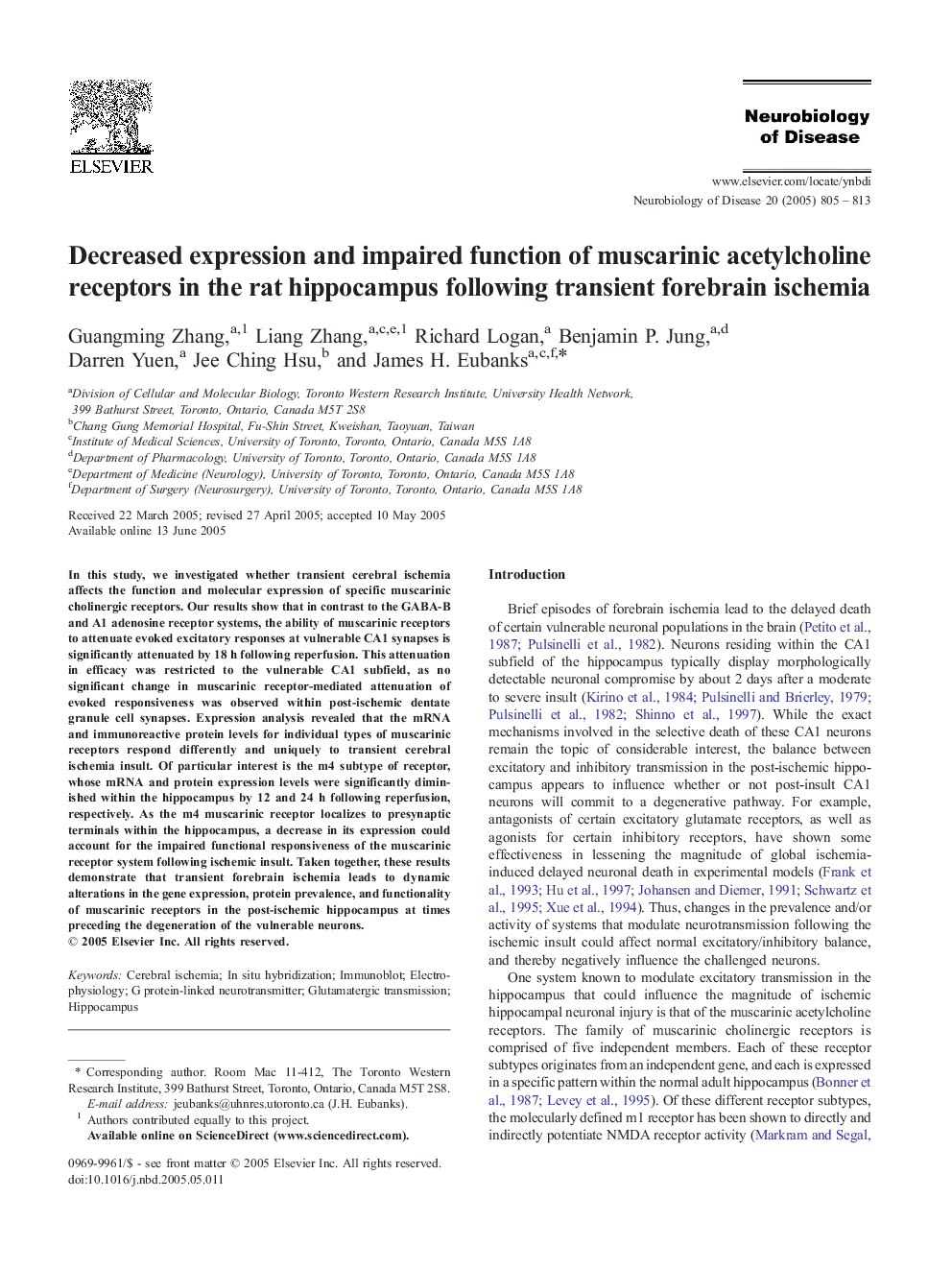| Article ID | Journal | Published Year | Pages | File Type |
|---|---|---|---|---|
| 9989558 | Neurobiology of Disease | 2005 | 9 Pages |
Abstract
In this study, we investigated whether transient cerebral ischemia affects the function and molecular expression of specific muscarinic cholinergic receptors. Our results show that in contrast to the GABA-B and A1 adenosine receptor systems, the ability of muscarinic receptors to attenuate evoked excitatory responses at vulnerable CA1 synapses is significantly attenuated by 18 h following reperfusion. This attenuation in efficacy was restricted to the vulnerable CA1 subfield, as no significant change in muscarinic receptor-mediated attenuation of evoked responsiveness was observed within post-ischemic dentate granule cell synapses. Expression analysis revealed that the mRNA and immunoreactive protein levels for individual types of muscarinic receptors respond differently and uniquely to transient cerebral ischemia insult. Of particular interest is the m4 subtype of receptor, whose mRNA and protein expression levels were significantly diminished within the hippocampus by 12 and 24 h following reperfusion, respectively. As the m4 muscarinic receptor localizes to presynaptic terminals within the hippocampus, a decrease in its expression could account for the impaired functional responsiveness of the muscarinic receptor system following ischemic insult. Taken together, these results demonstrate that transient forebrain ischemia leads to dynamic alterations in the gene expression, protein prevalence, and functionality of muscarinic receptors in the post-ischemic hippocampus at times preceding the degeneration of the vulnerable neurons.
Keywords
Related Topics
Life Sciences
Neuroscience
Neurology
Authors
Guangming Zhang, Liang Zhang, Richard Logan, Benjamin P. Jung, Darren Yuen, Jee Ching Hsu, James H. Eubanks,
